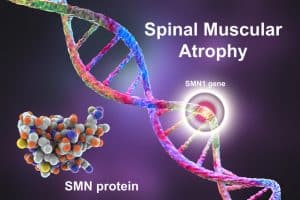
Investigational Alexion drug proves non-inferior to Soliris in rare blood disease
pharmafile | April 27, 2018 | News story | Medical Communications, Research and Development | Alexion, paroxysmal nocturnal haemoglobinuria, pharma, soliris
Alexion has lifted the curtain on new data for its C5 complement inhibitor ALXN1210, demonstrating its non-inferiority to another of its products, the terminal complement inhibitor Soliris (eculizumab), in the treatment of paroxysmal nocturnal haemoglobinuria (PNH).
The results of the switch study showed that patients with PNH can be safely transferred from treatment with Soliris every two weeks to a regimen of ALXN1210 taken every eight weeks. This non-inferiority was shown as ALXN1210 hit the trial’s primary endpoint of change in lactate dehydrogenase (LDH) levels, which is used as a direct marker of complement-mediated haemolysis in PNH. Besides this, the therapy also showed non-inferiority in four secondary endpoints, including the proportion of patients with breakthrough haemolysis, the change from baseline in quality of life as assessed via the Functional Assessment of Chronic Illness Therapy (FACIT)-Fatigue Scale, the proportion of patients avoiding transfusion, and the proportion of patients with stabilised haemoglobin levels. Numeric results for all five endpoints favoured ALXN1210.
ALXN1210’s safety profile was also shown to be consistent with Soliris, while notably no patients receiving it experienced breakthrough haemolysis compared to five patients treated with Soliris.
“Once again ALXN1210 met the high bar set by Soliris in a second, large Phase 3 study. Importantly, we now have robust data that patients with PNH can effectively and safely transition from Soliris to ALXN1210,” commented Dr John Orloff, Executive Vice President and Head of Research & Development at Alexion. “We are very pleased that the totality of the Phase 3 PNH data in more than 440 patients, which included patients who had never received a complement inhibitor and patients who were stable on Soliris and switched to ALXN1210, shows numeric results favouring ALXN1210 across all primary and key secondary endpoints, including breakthrough haemolysis.”
Dr Orloff added that the company will be making global regulatory filings in the US and EU in mid-2018, followed by Japan later in the year.
Matt Fellows
Related Content

LGC Group opens $100M Organic Chemistry Synthesis Centre of Excellence
LGC Group, a life sciences company, has opened its new Organic Chemistry Synthesis Centre of …

Johnson & Johnson announces successful results from trial for myeloma treatment
Global healthcare company, Johnson & Johnson, announced that analysis of its Darzalex (daratumumab) therapy showed …

Bend Bioscience adds commercial spray drying facility to Georgia site
Bend Bioscience has announced the addition of a commercial-scale spray dryer and a Gerteis dry …






